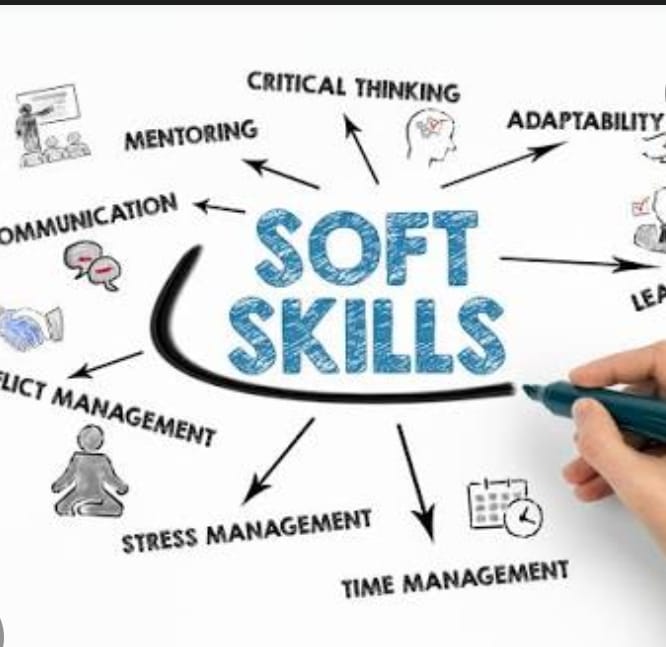Introduction
Nowadays, almost every company want a skilled person. Skills helps them work more efficiently and grow faster. People with skills have better job opportunities and higher income potential.
If you have skills, you don’t have to rely only on a job — you can work remotely, start a freelance career, or build an online business to earn more.
Through this article, you can learn about the most in-demand skills in the U.S. workforce right now, which will give you the opportunity to earn and grow more in today’s world.
Technical Skills :

1. Artificial Intelligence (AI) and Machine Learning (ML)
Natural language processing is the most demanded skill in 2025 because in today’s time, every business customer wants to improve their experience. With the help of NLP, machines can understand human language, like chatbots, voice assistants, and automated customer support systems. Nowadays, companies want software engineers who can build and train models of NLP. If you learn NLP, then you will become an expert in making an AI-driven application and easily secure a top tech role in the market.
2. Cloud Computing
- Cloud engineers create secure and scalable cloud solutions for companies.
- Data migration to cloud.
- Designing security and backup solutions.
- Doing scalable storage and networking setup.
They use tools like AWS, Microsoft Azure, Google Cloud, Docker, and Kubernetes.
It can be easily handled with remote work because the work of the cloud happens on online servers and platforms.
3. Data Scientist
Data scientists are professionals who analyze complex data and make future predictions and strategic decisions for business. If we say in simple words, then data scientists not only see trends but also create models and solutions based on data, which help businesses to make smarter decisions.
Data scientists use tools and technology such as Python, R, SQL, Machine Learning, AI, big data platforms, and data visualization so that huge data sets can be processed and interpreted.
Their main work is;
- Organizing and cleaning data.
- Developing predictive models for complex problems.
- Providing recommendations and insights for business.
- Identify trends and patterns to provide future prediction.
Overall, data scientists guide businesses to analyze deeply and take smarter, faster, and data-driven decisions.
4. Cybersecurity
Cybersecurity is a fast and dynamic growing field, and the career opportunities are diverse in this. If you want to pursue a career in this field, then the first thing you have to understand is what roles are available, what responsibilities are required, and what skills and certifications are required.
5. UX/UI Design
UI (User Interface) designers design the look and feel of a website or app. Basically, the things which are shown on the user screen, such as button, color, font style, are all part of UI design.
UX (User Experience) design
It makes the user journey smooth and easy. UX designers ensure that users feel simple, logical, and comfortable experiences while using the app or website.
Example: searching for a product and checking out is fast and easy in a shopping app, and that is because of UX design.
Soft Skills :

1. Critical Thinking and Problem-Solving Skills
Critical thinking means analyzing a situation logically and making smart decisions. In future jobs, only seeing data will not be enough instead taking data-driven and creative decisions will be important. The people who find innovative solutions with a different perspective, their demand will increase in every industry.
2. Creativity and Innovation Skills
Creative doesn’t mean art only, it also means thinking out of the box in every field. Innovative people find new ideas and unique perspectives which impact directly in the growth of the company. In the time of AI and automation, human creativity is one and only skill that is irreplaceable.
3. Communication Skills
Whether you are in the office or doing remote work effective communication works everywhere. Clarity should be in every format of communication whether it’s verbal, written, or digital communication. Also, active listening is important because right communication does not happen just by speaking it also by understanding. Focusing on clarity and tones in digital messages or virtual meetings has also become an essential skill.
4. Emotional Intelligence (EQ)
Emotional intelligence improves communication and understanding between team members. When team members understand the emotions of each other’s than communication becomes clearer and respectful. People can share ideas freely in this environment and collaboration becomes strong naturally, which improves productivity and creativity.
Conflict is normal in teamwork but emotionally intelligent people handle that calmly. They listen to others and try to understand the situation instead of reacting immediately. It helps to decrease unnecessary misunderstandings and problems get solved easily which helps to create a healthy and peaceful work environment.
When team members understand each other’s emotions and perspectives then they build trust for each other. Emotionally intelligent people show empathy and value everyone’s contribution. It creates mutual respect for everyone in the team and everyone feels important.
5. Adaptability and Flexibility Skills
In today’s fast-changing world, adaptability and flexibility are the most important soft skills. These skills work when you need to adjust to new technology, tools, or a job role. People who accept changes quickly become successful in the future workforce. Also staying open for lifelong learning is important because knowledge and skills are never static.
6. Leadership and Collaboration
Leadership does not only mean leading a team, it also means guiding people with empathy. In future workplaces, leaders will be the person who motivates the team, can work effectively with people from diverse backgrounds. Collaboration has become a key factor of success whether it’s remote or hybrid.
7. Time Management and Self-Discipline
Time management is the backbone of successful work. It allows you to stay focused, complete tasks efficiently, and meet deadlines without unnecessary stress. With proper planning and discipline, workers can maintain a healthy work-life balance, avoid burnout, and make the most of the flexibility that jobs offer. Moreover, mastering time management builds reliability and professionalism, helping you grow in your career while staying productive and motivated every day.
How to Learn and Develop These Skills?
- Online course
With platforms like BestJobTool blogs, Coursera, Udemy, LinkedIn Learning, and Skillshare, you can learn skills anytime and anywhere. Here you can find courses from beginner to experience level. - Certification
A certificate from recognized institutions adds value to your profile. Like a Google Analytics certificate or a Microsoft Excel certificate, prove your expertise. - Workshop
Workshops are short-term interactive sessions where you can directly learn practical skills from experts. It’s also very useful for networking. - Volunteering: Taking unpaid roles or community projects in your field of interest, which helps you gain real-world experience and apply your skills practically. It also strengthens your portfolio and network.
- Industry event
Attend industry events and seminars to know about the industry in detail and in person. With these, you will understand which tools and software, soft skills are used why they are used in the actual work.
Conclusion
This article covered the most in-demand skills in the U.S. workforce right now, including both technical and soft skills that employers are actively seeking. It discussed key areas such as AI, data analysis, cybersecurity, communication, leadership, and adaptability — all of which are essential to succeed in today’s fast-changing job market.
By understanding these skills, you can better align your career goals with market demand, choose the right courses or certifications, and make yourself more employable in top U.S. industries. This guide will help you stay ahead of competition, prepare for future opportunities, and build a successful, future-ready career.



